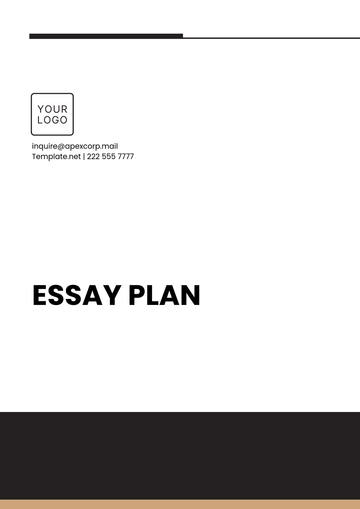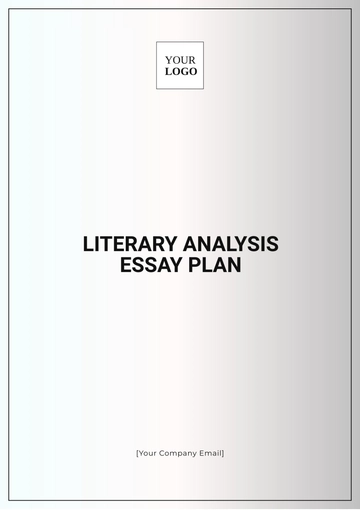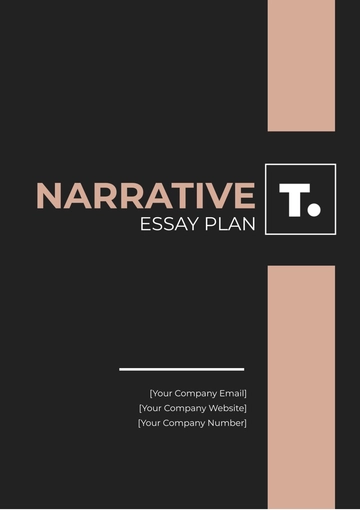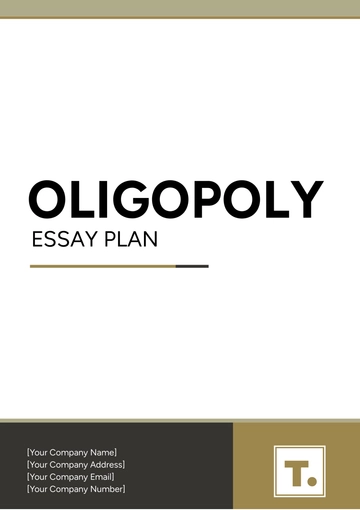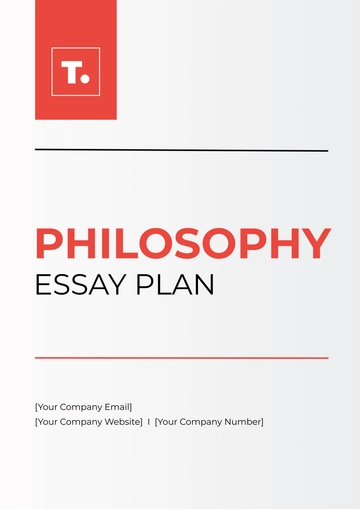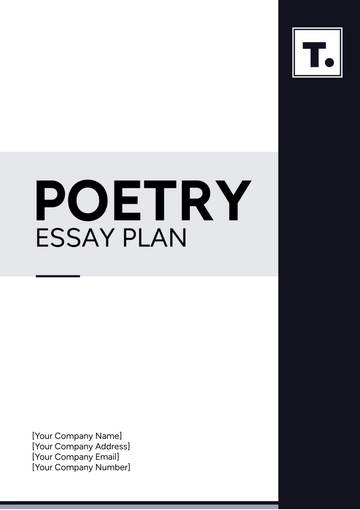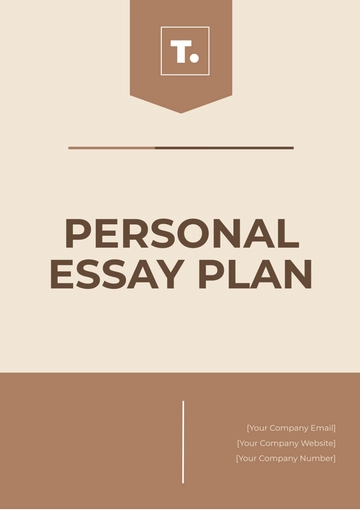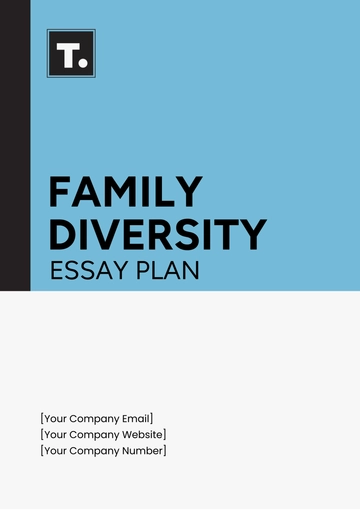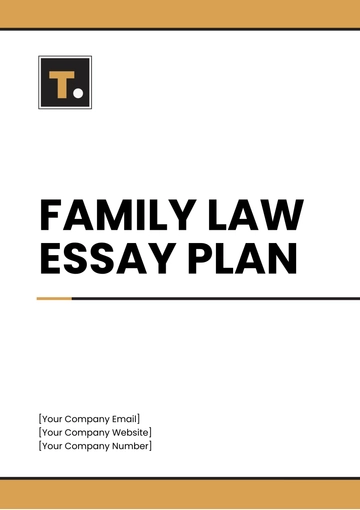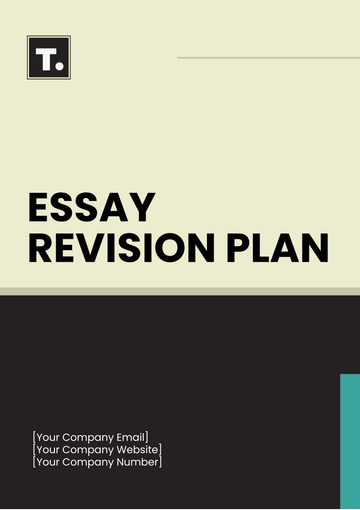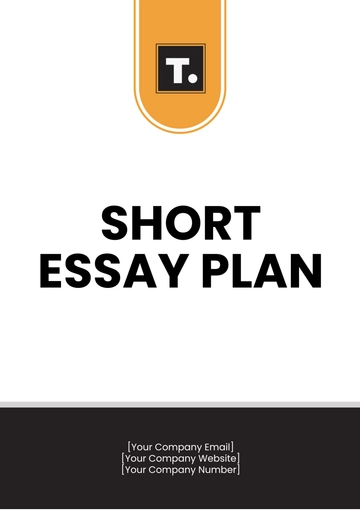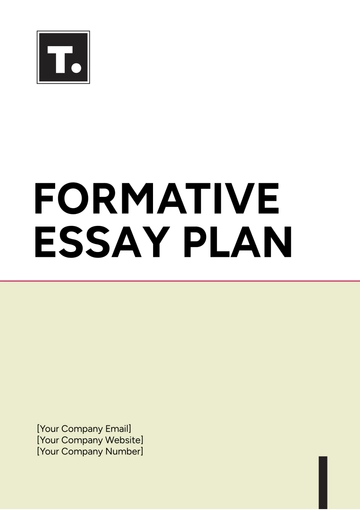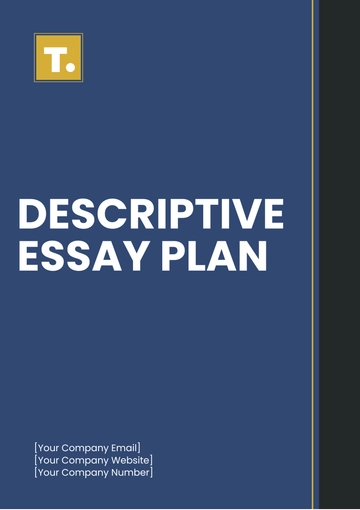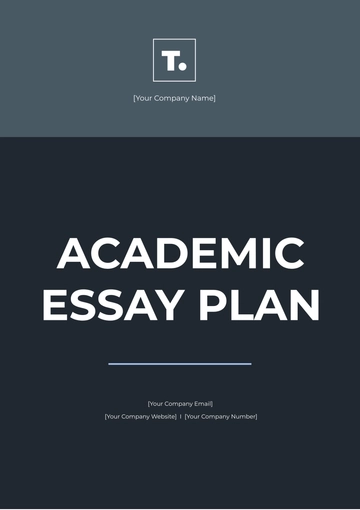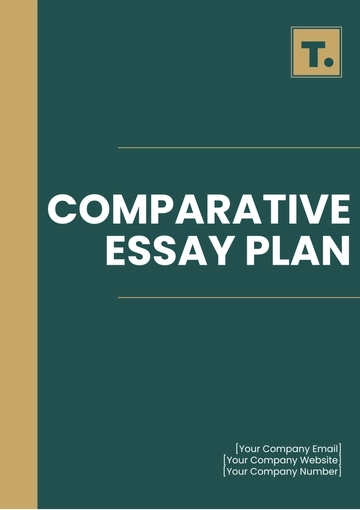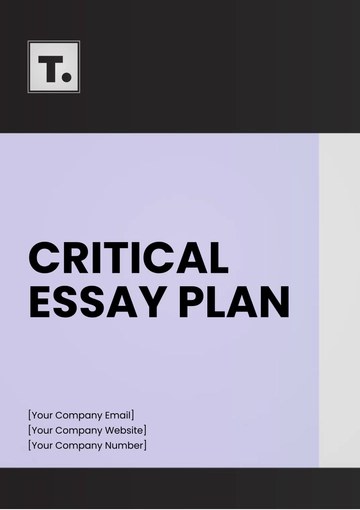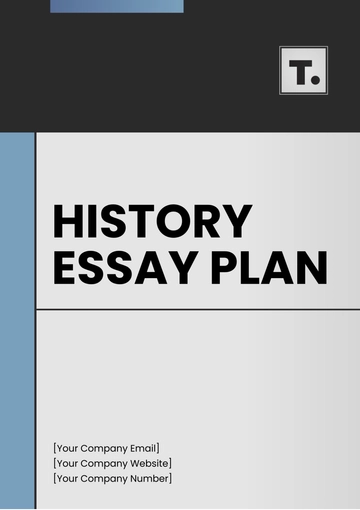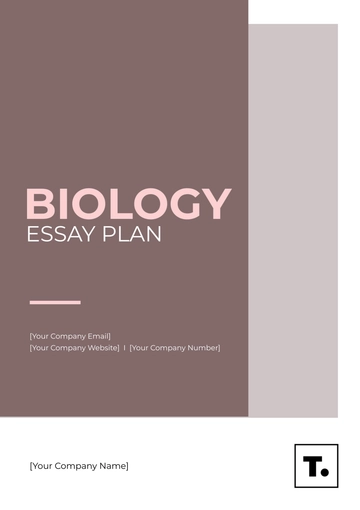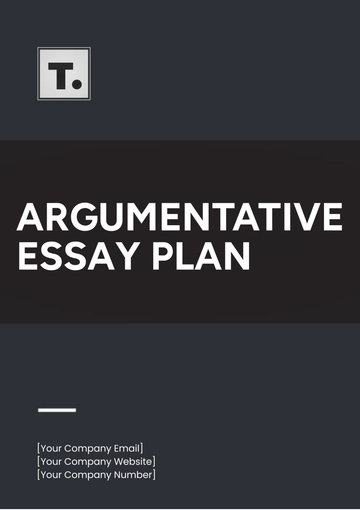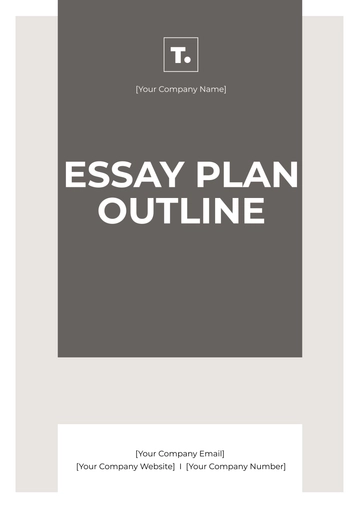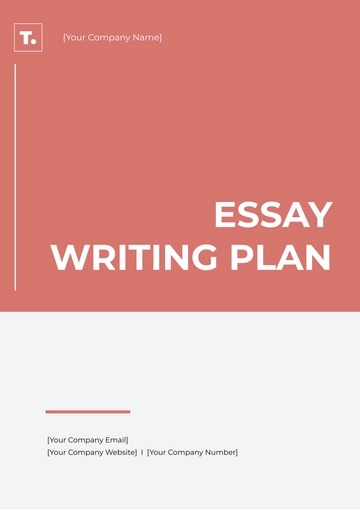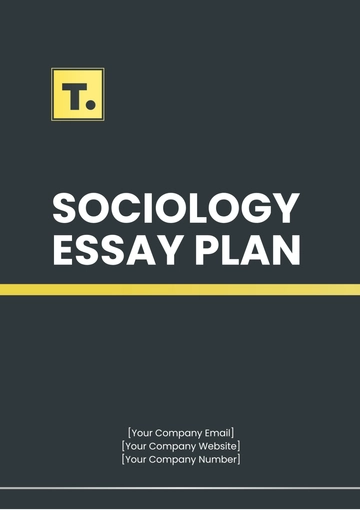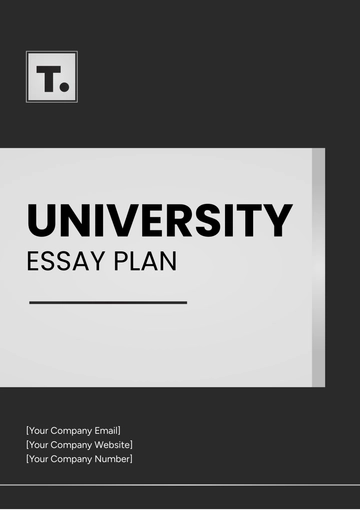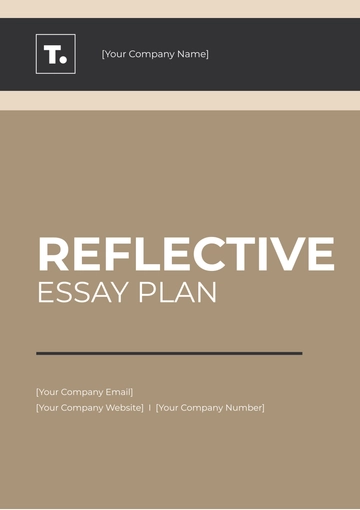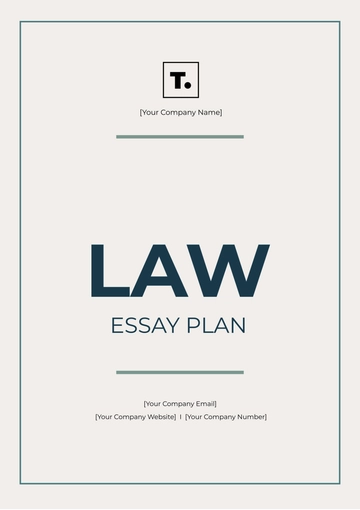Free Academic Essay Plan
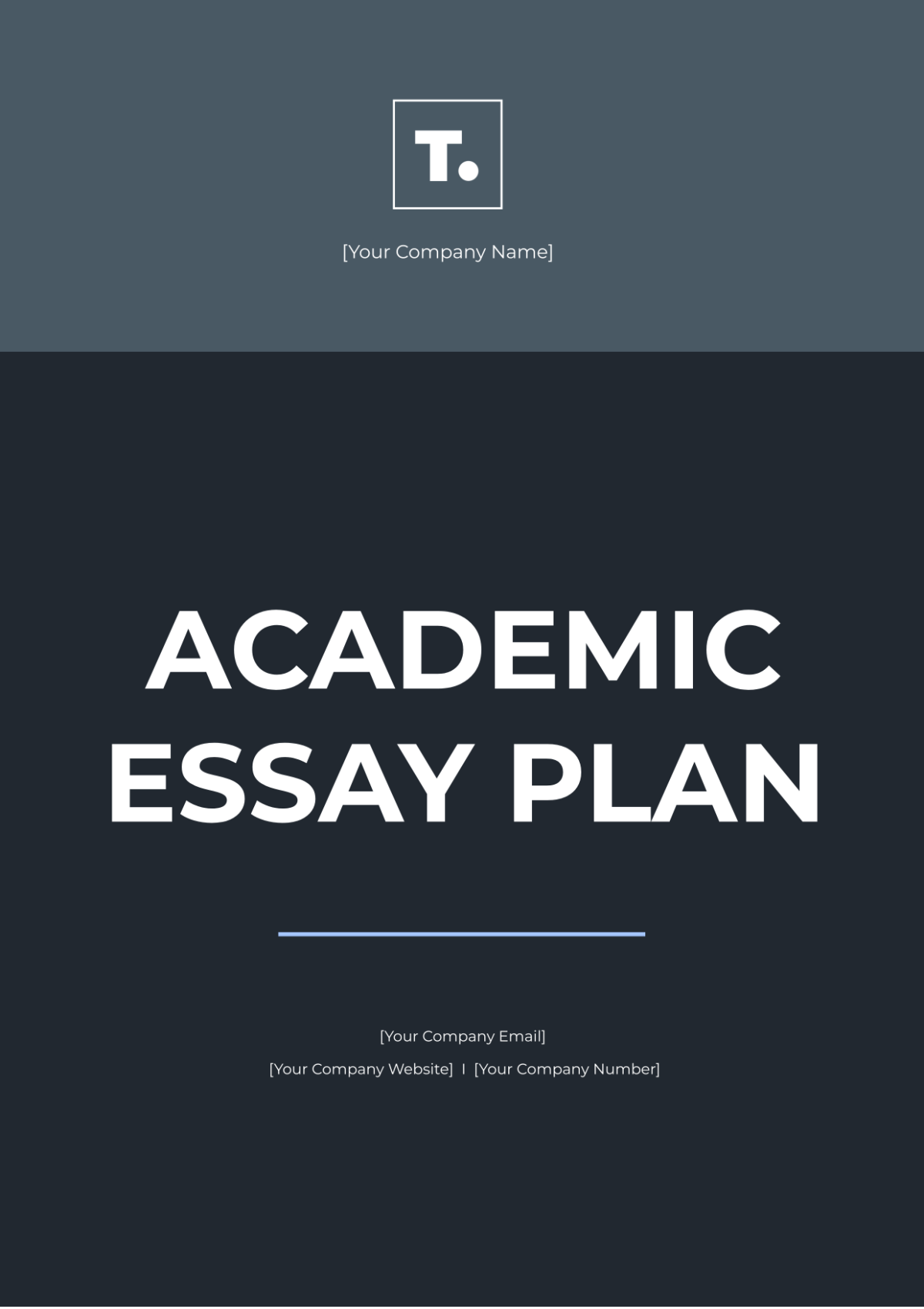
Written by: [YOUR NAME]
I. Introduction
Purpose: This template is designed to guide the structuring and writing of an academic essay, emphasizing thorough research, critical analysis, and coherent argumentation.
Student's Name: [YOUR NAME]
Instructor's Name: [INSTRUCTOR'S NAME]
Course Title: [COURSE TITLE]
Due Date: June 2, 2050
Essay Topic: [ESSAY TOPIC]
Thesis Statement: [THESIS STATEMENT] - A concise, clear assertion that presents the central argument of your essay, around which all subsequent analysis will revolve.
II. Background Information
Contextual Overview: Provide a brief historical or contextual backdrop that sets the stage for your argument. This section should help readers understand the broader academic or real-world implications of the topic.
Relevance: Explain why this topic is significant in the current academic discourse or practical terms.
III. Argument Development
A. Main Argument
Point: [MAIN POINT] - Outline the primary argument supporting your thesis.
Evidence: Detail the evidence that supports this point, including citations from primary and secondary sources, data analysis, and theoretical frameworks.
B. Supporting Arguments
Point One: [SUPPORTING POINT ONE] - Introduce an additional argument that bolsters your main point.
Evidence: Provide specific examples, scholarly quotes, and empirical data.
Point Two: [SUPPORTING POINT TWO]
Evidence: Further solidify your thesis with cross-referenced research or case studies.
IV. Counterarguments and Rebuttal
Presentation of Counterarguments: Identify and articulate potential objections or alternate viewpoints regarding your thesis.
Rebuttal: Offer a detailed rebuttal to each counterargument presented, using research, logic, and evidence to undermine opposing views and strengthen your original position.
V. Synthesis and Critical Analysis
Integration of Arguments: Synthesize the main and supporting arguments to demonstrate how they collectively address the thesis statement.
Critical Reflection: Engage critically with the material by discussing limitations, gaps, and the implications of your findings. Reflect on what your analysis contributes to the field.
VI. Conclusion
Summary of Key Points: Briefly recapitulate the main arguments and evidence, ensuring they support the thesis.
Final Insight: Conclude with a strong closing statement that reflects the conclusions drawn from the evidence and suggests potential areas for further research or inquiry.
VII. References
List of Sources: Include a comprehensive list of all sources cited throughout the essay. Ensure each source is appropriately formatted according to [PREFERRED CITATION STYLE].
VIII. Appendices
Supplementary Materials: Attach any additional materials that support the essay's arguments but are too detailed to include in the main text, such as charts, detailed data, or extended quotations.
- 100% Customizable, free editor
- Access 1 Million+ Templates, photo’s & graphics
- Download or share as a template
- Click and replace photos, graphics, text, backgrounds
- Resize, crop, AI write & more
- Access advanced editor
Crafting a stellar academic essay just got simpler with Template.net's Academic Essay Plan Template. This editable and customizable resource streamlines your writing process. Tailor your blueprint effortlessly in our AI Editor Tool, ensuring precision and clarity in every paragraph. Elevate your essays effortlessly with this indispensable tool
You may also like
- Finance Plan
- Construction Plan
- Sales Plan
- Development Plan
- Career Plan
- Budget Plan
- HR Plan
- Education Plan
- Transition Plan
- Work Plan
- Training Plan
- Communication Plan
- Operation Plan
- Health And Safety Plan
- Strategy Plan
- Professional Development Plan
- Advertising Plan
- Risk Management Plan
- Restaurant Plan
- School Plan
- Nursing Home Patient Care Plan
- Nursing Care Plan
- Plan Event
- Startup Plan
- Social Media Plan
- Staffing Plan
- Annual Plan
- Content Plan
- Payment Plan
- Implementation Plan
- Hotel Plan
- Workout Plan
- Accounting Plan
- Campaign Plan
- Essay Plan
- 30 60 90 Day Plan
- Research Plan
- Recruitment Plan
- 90 Day Plan
- Quarterly Plan
- Emergency Plan
- 5 Year Plan
- Gym Plan
- Personal Plan
- IT and Software Plan
- Treatment Plan
- Real Estate Plan
- Law Firm Plan
- Healthcare Plan
- Improvement Plan
- Media Plan
- 5 Year Business Plan
- Learning Plan
- Marketing Campaign Plan
- Travel Agency Plan
- Cleaning Services Plan
- Interior Design Plan
- Performance Plan
- PR Plan
- Birth Plan
- Life Plan
- SEO Plan
- Disaster Recovery Plan
- Continuity Plan
- Launch Plan
- Legal Plan
- Behavior Plan
- Performance Improvement Plan
- Salon Plan
- Security Plan
- Security Management Plan
- Employee Development Plan
- Quality Plan
- Service Improvement Plan
- Growth Plan
- Incident Response Plan
- Basketball Plan
- Emergency Action Plan
- Product Launch Plan
- Spa Plan
- Employee Training Plan
- Data Analysis Plan
- Employee Action Plan
- Territory Plan
- Audit Plan
- Classroom Plan
- Activity Plan
- Parenting Plan
- Care Plan
- Project Execution Plan
- Exercise Plan
- Internship Plan
- Software Development Plan
- Continuous Improvement Plan
- Leave Plan
- 90 Day Sales Plan
- Advertising Agency Plan
- Employee Transition Plan
- Smart Action Plan
- Workplace Safety Plan
- Behavior Change Plan
- Contingency Plan
- Continuity of Operations Plan
- Health Plan
- Quality Control Plan
- Self Plan
- Sports Development Plan
- Change Management Plan
- Ecommerce Plan
- Personal Financial Plan
- Process Improvement Plan
- 30-60-90 Day Sales Plan
- Crisis Management Plan
- Engagement Plan
- Execution Plan
- Pandemic Plan
- Quality Assurance Plan
- Service Continuity Plan
- Agile Project Plan
- Fundraising Plan
- Job Transition Plan
- Asset Maintenance Plan
- Maintenance Plan
- Software Test Plan
- Staff Training and Development Plan
- 3 Year Plan
- Brand Activation Plan
- Release Plan
- Resource Plan
- Risk Mitigation Plan
- Teacher Plan
- 30 60 90 Day Plan for New Manager
- Food Safety Plan
- Food Truck Plan
- Hiring Plan
- Quality Management Plan
- Wellness Plan
- Behavior Intervention Plan
- Bonus Plan
- Investment Plan
- Maternity Leave Plan
- Pandemic Response Plan
- Succession Planning
- Coaching Plan
- Configuration Management Plan
- Remote Work Plan
- Self Care Plan
- Teaching Plan
- 100-Day Plan
- HACCP Plan
- Student Plan
- Sustainability Plan
- 30 60 90 Day Plan for Interview
- Access Plan
- Site Specific Safety Plan
